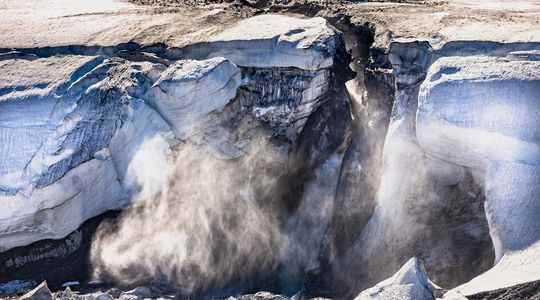This is a report that urgently needs to be in the hands of the participants at COP 27, which opened this Sunday, November 6 in Egypt. The World Meteorological Organization (WMO) publishes, on the same day, its interim annual report on the state of the climate in 2022, before a final version in early 2023. If this year will only appear as the fifth or sixth hottest year on record, due to the “La Nina” phenomenon which temporarily cools regions of the Pacific Ocean, the general dynamic is very bad. With 1.15°C warming compared to the pre-industrial era, the period 2015-2022 turns out to be the hottest since measurements were taken, opening up gloomy prospects. The concentrations of greenhouse gases in the atmosphere have broken new records this year, so that “the threshold of 1.5°C of warming set in the Paris agreement is barely within our reach”, s alarmed the Secretary General of WMO.
“It’s already too late for many glaciers”
UN Secretary General Antonio Guterres reacted by calling this report a “chronicle of climate chaos”, seeing in the events described by the organization “a signal of distress sent by the planet”. In recent months, extreme weather events have indeed multiplied. Fires and droughts have punctuated the summer period, melting glaciers, as was the case at the highest peak in the Italian Alps at the beginning of July.
Accelerated melting of ice caps has led to record sea level rise in 2022, with a 10mm rise since January 2020, or 10% of the rise recorded since satellite measurements began in 1993. is already too late for many glaciers and the melting will continue for hundreds or even thousands of years, with major consequences for the water supply,” said the head of the World Meteorological Organization, Petteri Taalas.
All continents are suffering the effects of these disruptions: torrential rains in Pakistan, severe drought in East Africa, cyclones in southern Africa… Phenomena which, according to climatologist Friederike Otto, interviewed by AFP, “n’ would not have been so serious without climate change”. And while science has proven that every tenth of a degree multiplies catastrophic phenomena, Petteri Taalas believes that limiting warming to 1.5°C is now a question of “survival”. COP27 therefore appears, in the eyes of the WMO, as the ideal moment to “burn the blinders” that prevent us from seeing in the long term.
